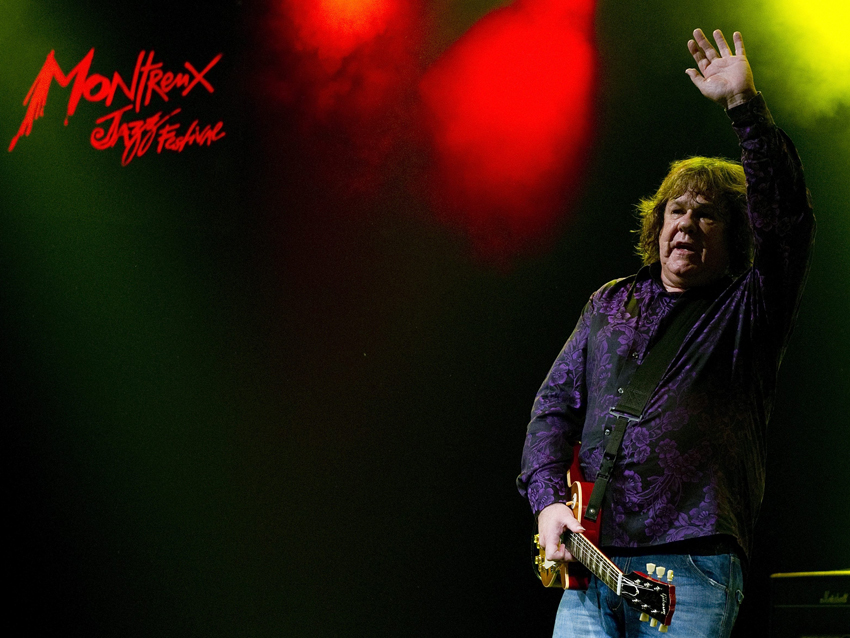
Gary Moore waves farewell at the conclusion of his set at the Montreux Jazz Festival in Montreux, Switzerland, July 2010

Performing on the Stravinski hall stage at the opening night of the 35th Montreux Jazz Festival
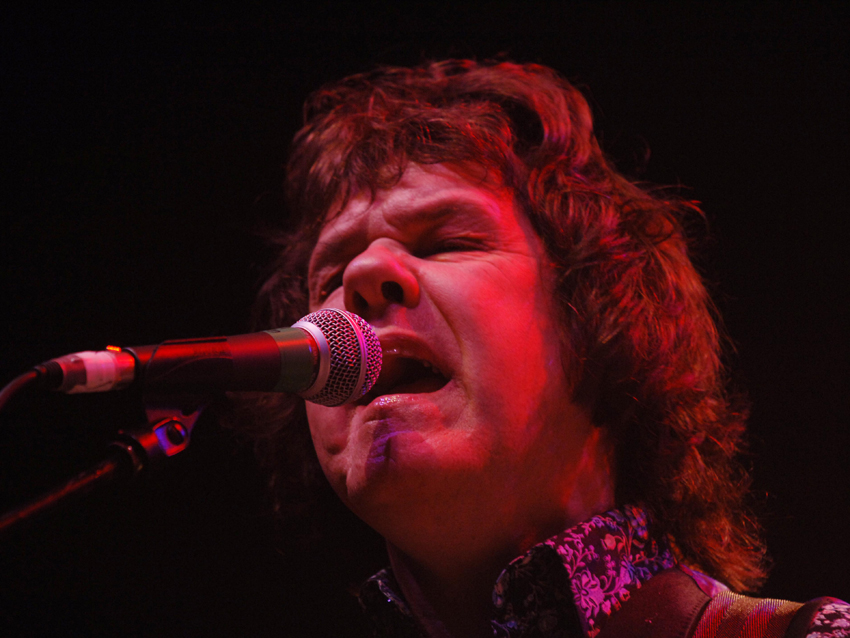
Onstage at Wembley Arena, London, UK
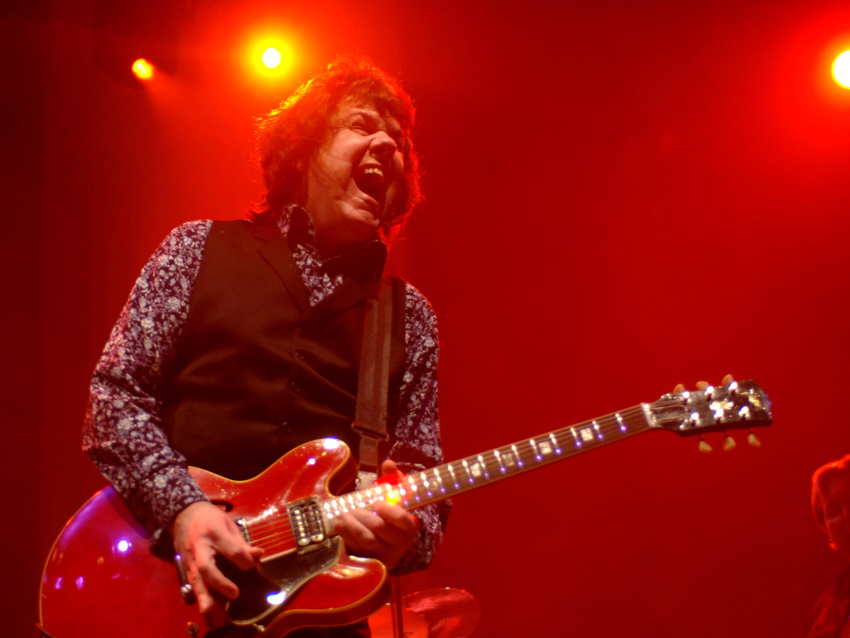
Onstage at Wembley Arena, London, UK
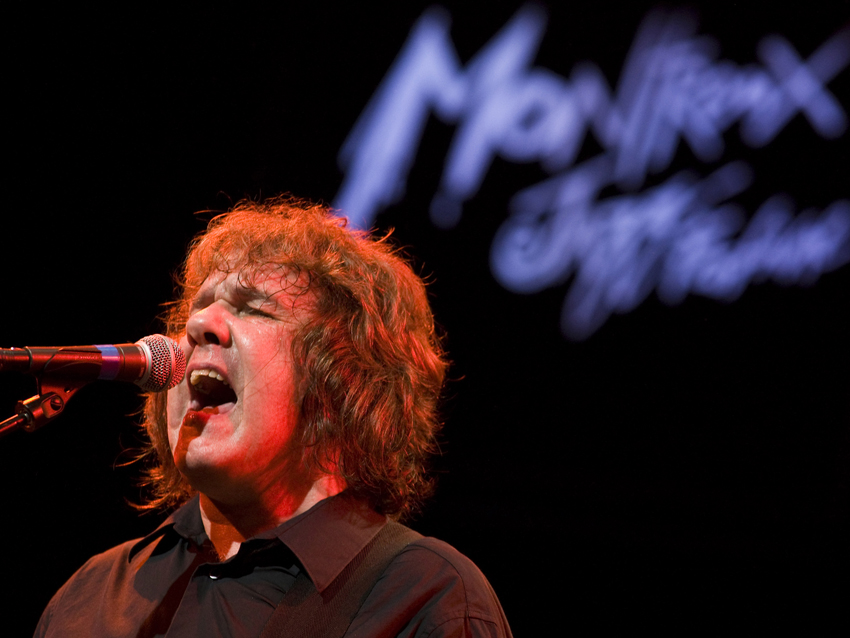
At the 42nd Montreux Jazz Festival
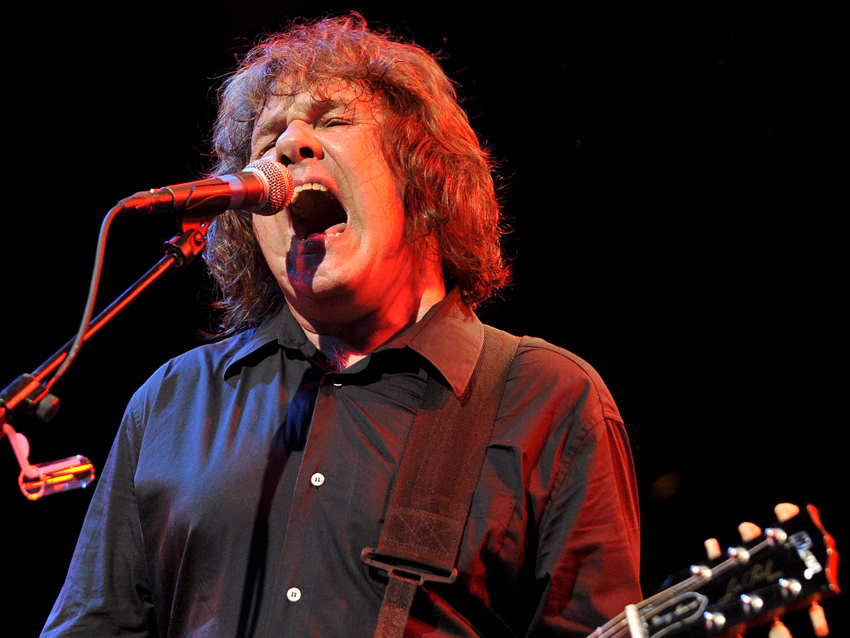
At the 42nd Montreux Jazz Festival
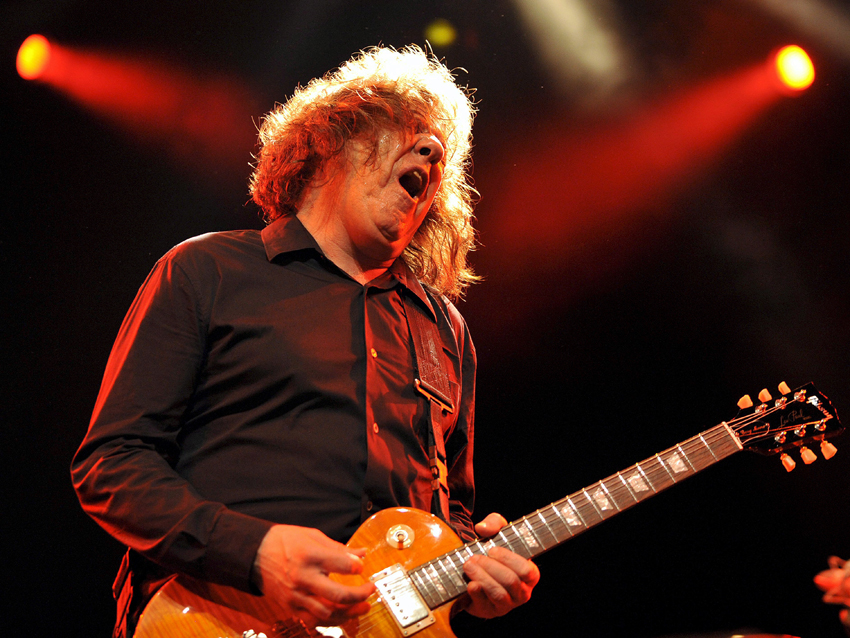
At the 42nd Montreux Jazz Festival
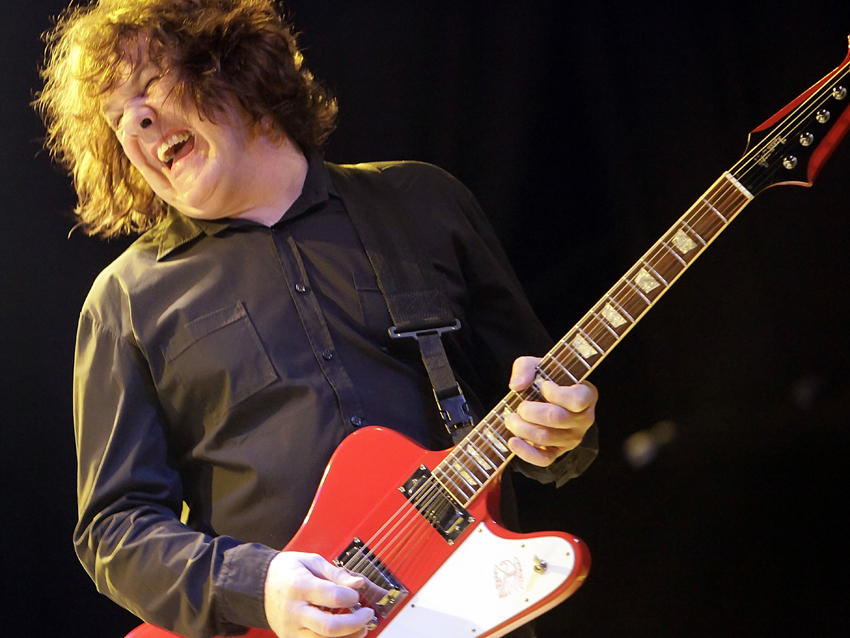
During the Sierre Blues Festival in Sierre, Switzerland
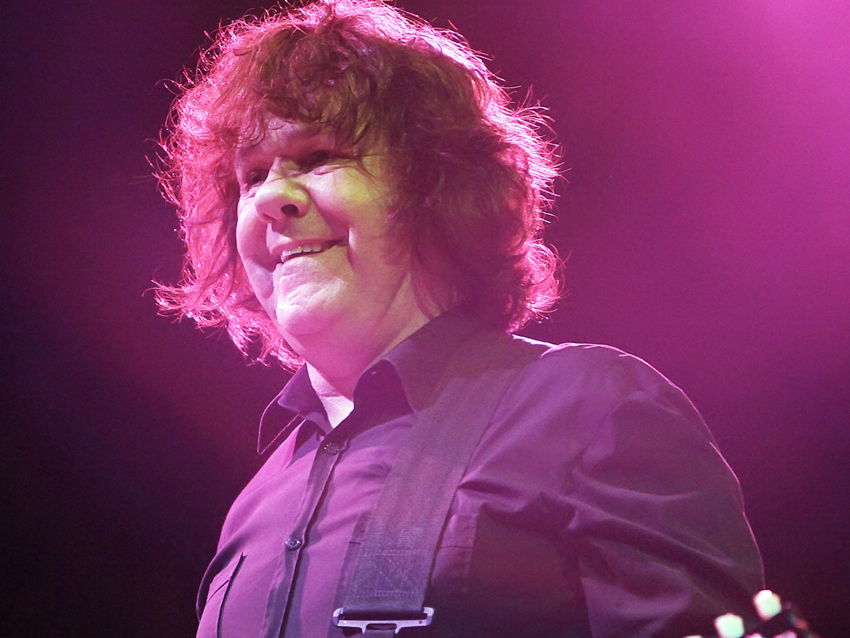
During the Sierre Blues Festival in Sierre, Switzerland
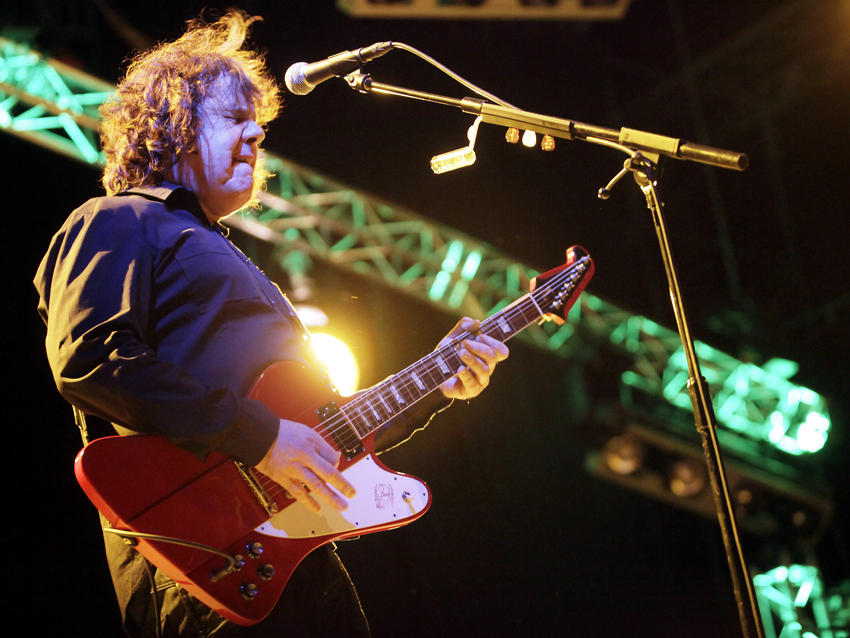
During the Sierre Blues Festival in Sierre, Switzerland
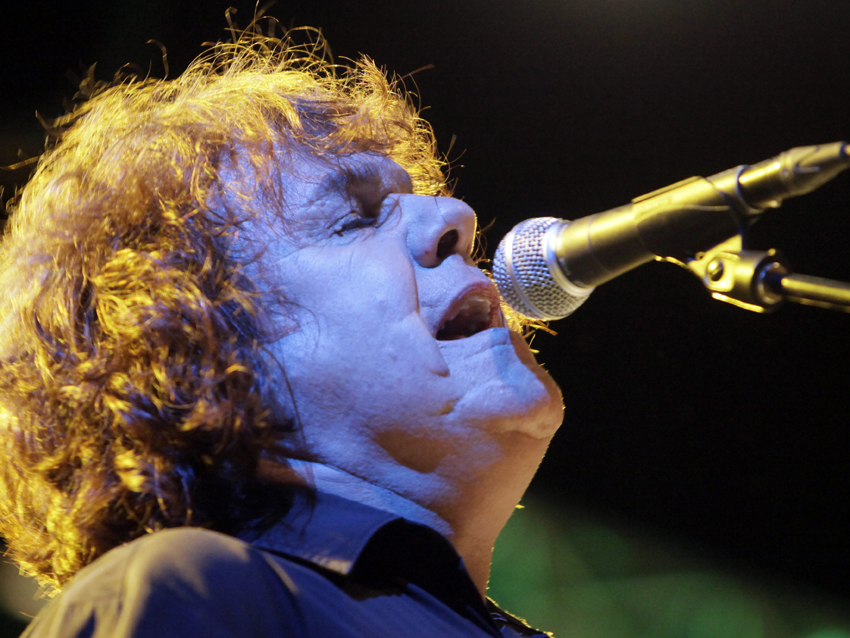
During the Sierre Blues Festival in Sierre, Switzerland
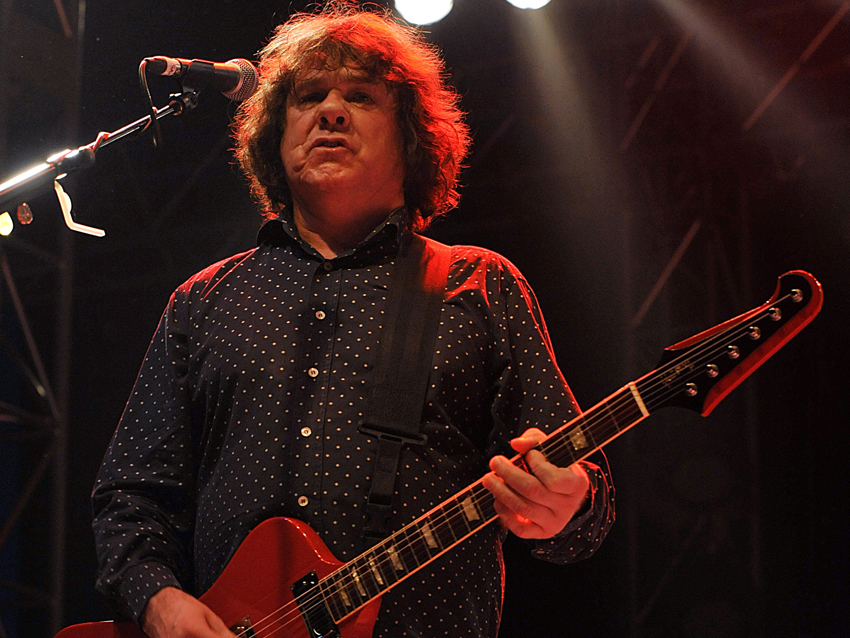
Tollwood festival in Munich, Germany
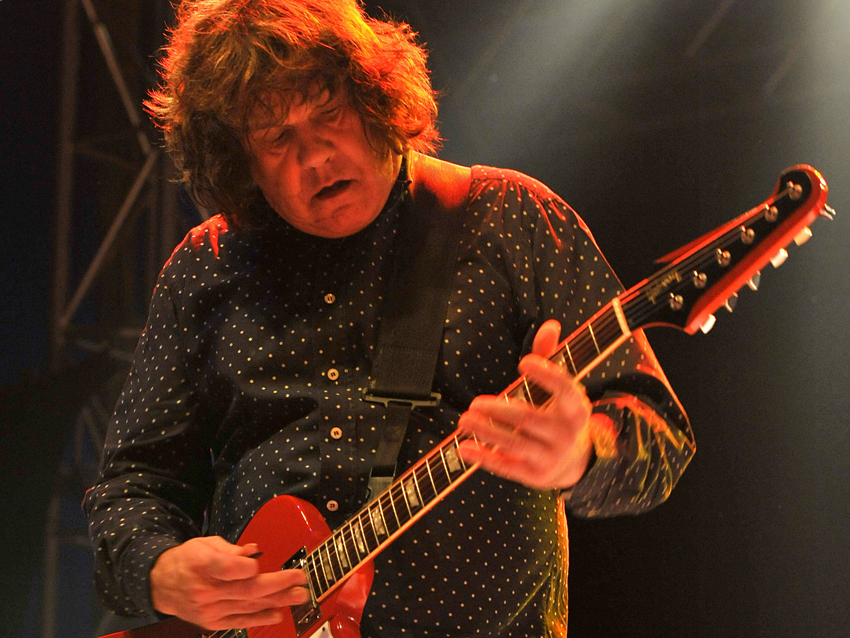
Tollwood festival in Munich, Germany
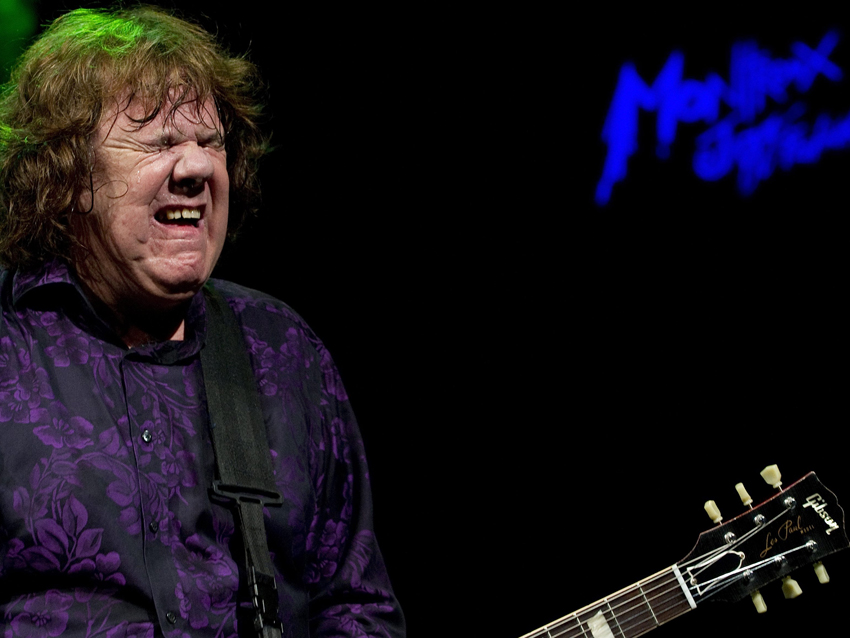
On the Stravinski Hall stage at the 44th Montreux Jazz Festival, in Montreux, Switzerland
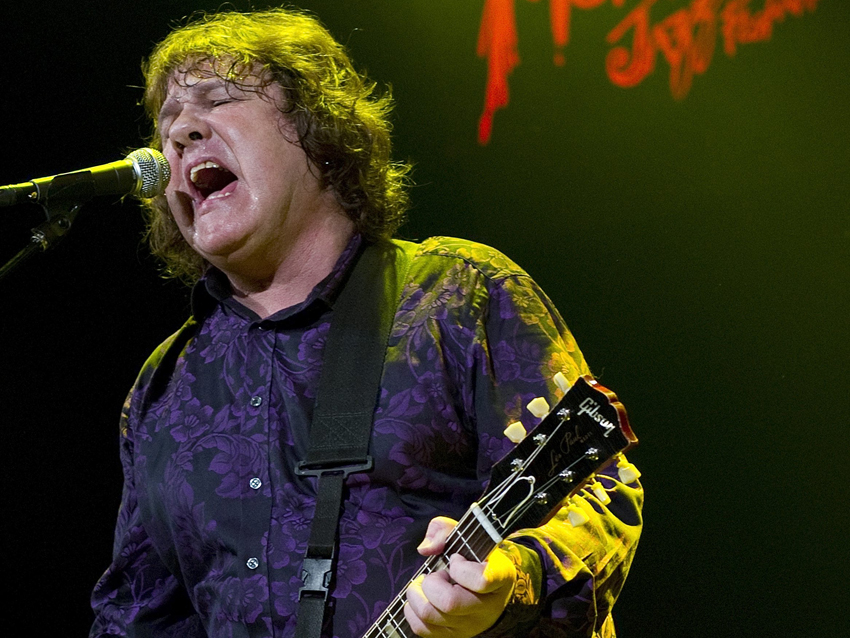
On the Stravinski Hall stage at the 44th Montreux Jazz Festival, in Montreux, Switzerland
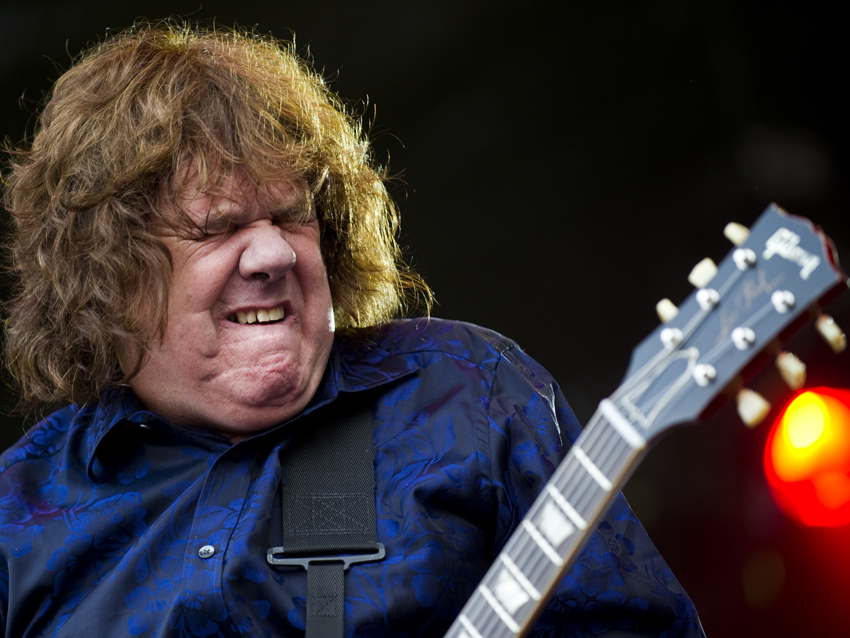
During the annual Dutch rock festival Pinkpop Classic at Landgraaf, Netherlands
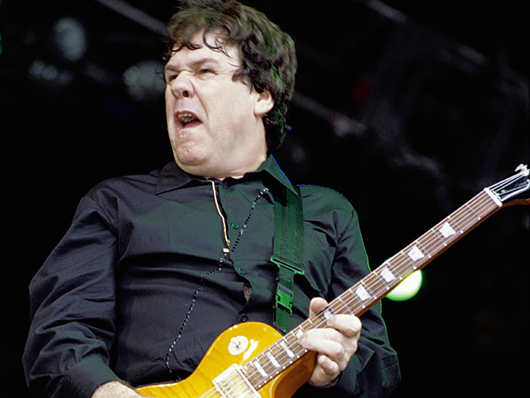
At the Fleadh Festival in Finsbury Park
Gary Moore, a legend of blues-rock guitar and a former member of the Irish group Thin Lizzy, was found dead in a hotel room in the Costa del Sol region of Spain today (6 February). He was 58 years old.
Born in Belfast, Northern Ireland, the left-handed Moore learned to play righty. Influenced by players as disparate as Albert King, George Harrison, Peter Green and Jimi Hendrix, he joined the Dublin band Skid Row in 1969 at the age of 16.
In 1973 he signed on to play with Thin Lizzy following the sudden departure of guitarist Eric Bell. His first stint with the band lasted just four months, but he would return four years later to play on the group's Black Rose album.
After leaving Thin Lizzy for good, Moore embarked on a successful solo career, issuing a string of highly acclaimed discs, such as 1990's Still Got The Blues.
"That was the record that did it for me," Joe Bonamassa told MusicRadar after being informed of Moore's death. The young blues-rock star, who has made a considerable name for himself as a solo artist and as a member of the supergroup Black Country Communion, said that hearing Still Got The Blues made him realize that it was "cool to be a Les Paul hero. This was when a lot of people were playing Strats. Man, I couldn't get over that album. Gary played with unbelievable fire and passion."
Bonamassa met Moore on a couple of occasions in recent years. Recalling their first encounter, which took place backstage during a festival show, he said, "I saw him and thought, This might be my only chance. So I went up to him and said, 'Hi, I'm Joe Bonamassa, and I owe you a lot of royalties from the riffs I stole from you.' He shook my hand and said, 'No problem, I illegally downloaded all of your albums!' He said it in a joking way, but I knew he was serious - and that was fine, because he was Gary Moore. I wouldn't be doing what I do if it wasn't for him. I'm sure I'm not the only person who can say that."
Bonamassa even named one of his Les Pauls after the Irish guitarist. "It's a '59 reissue that I play the song Sloe Gin on. Every time I play it, I think of Gary Moore."
Get the MusicRadar Newsletter
Want all the hottest music and gear news, reviews, deals, features and more, direct to your inbox? Sign up here.
Eric Bell, whom Moore replaced in Thin Lizzy, told the BBC that he was "in shock" at the news of the guitarist's death. "I still can't believe it," he said. "He was so robust. He wasn't a rock casualty.... He was a healthy guy.
Guitarist Scott Gorham, who played with Moore during the Black Rose era of Thin Lizzy, said, "He was a great player and a great guy. I will miss him."
Joe is a freelance journalist who has, over the past few decades, interviewed hundreds of guitarists for Guitar World, Guitar Player, MusicRadar and Classic Rock. He is also a former editor of Guitar World, contributing writer for Guitar Aficionado and VP of A&R for Island Records. He’s an enthusiastic guitarist, but he’s nowhere near the likes of the people he interviews. Surprisingly, his skills are more suited to the drums. If you need a drummer for your Beatles tribute band, look him up.
“I feel like that song had everything we needed to come back with”: Bring Me The Horizon’s Lee Malia on Shadow Moses, its riff and the secrets behind its tone, and why it was the right anthem at the right time
“I’m beyond excited to introduce the next evolution of the MT15”: PRS announces refresh of tube amp lineup with the all-new Archon Classic and a high-gain power-up for the Mark Tremonti lunchbox head










